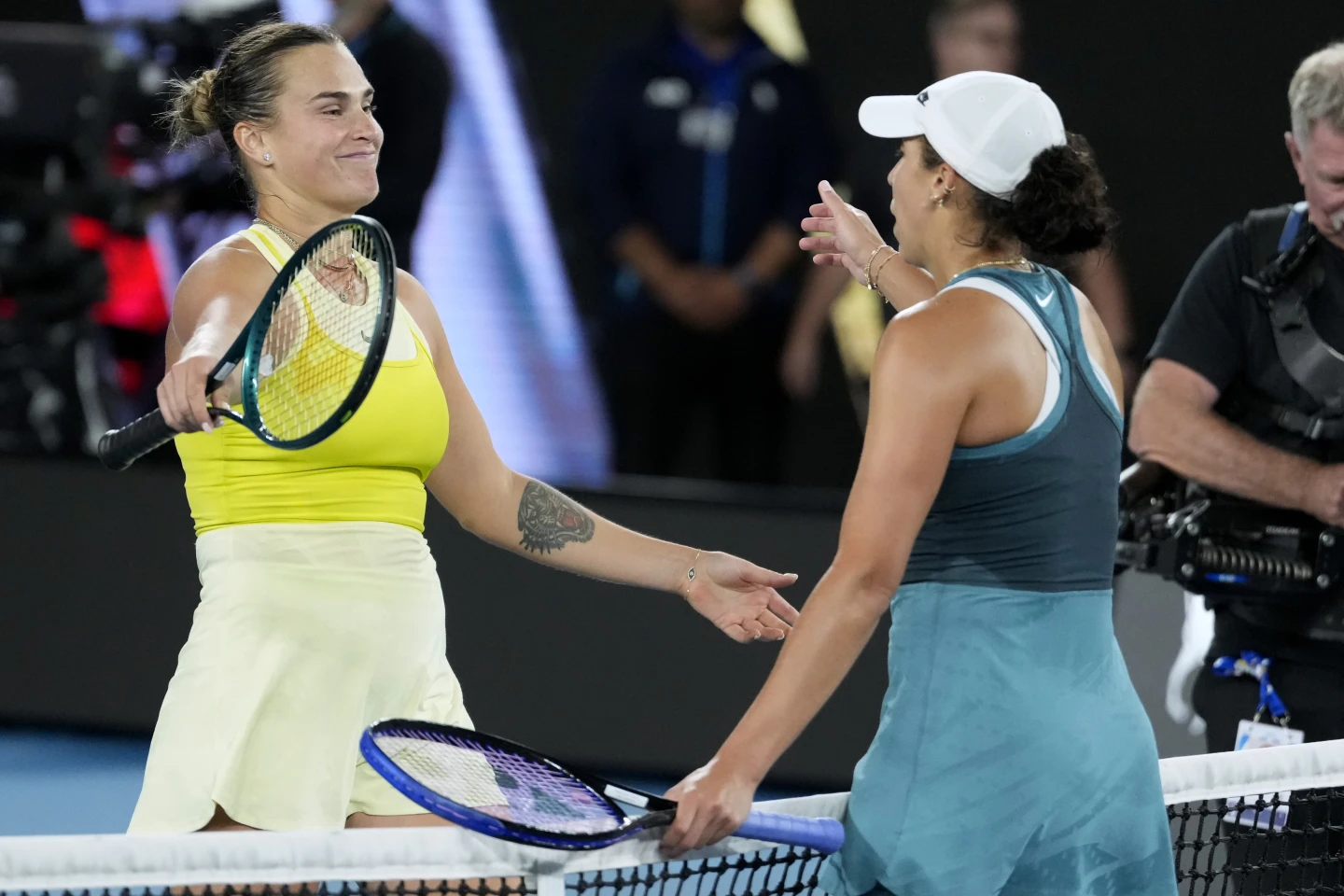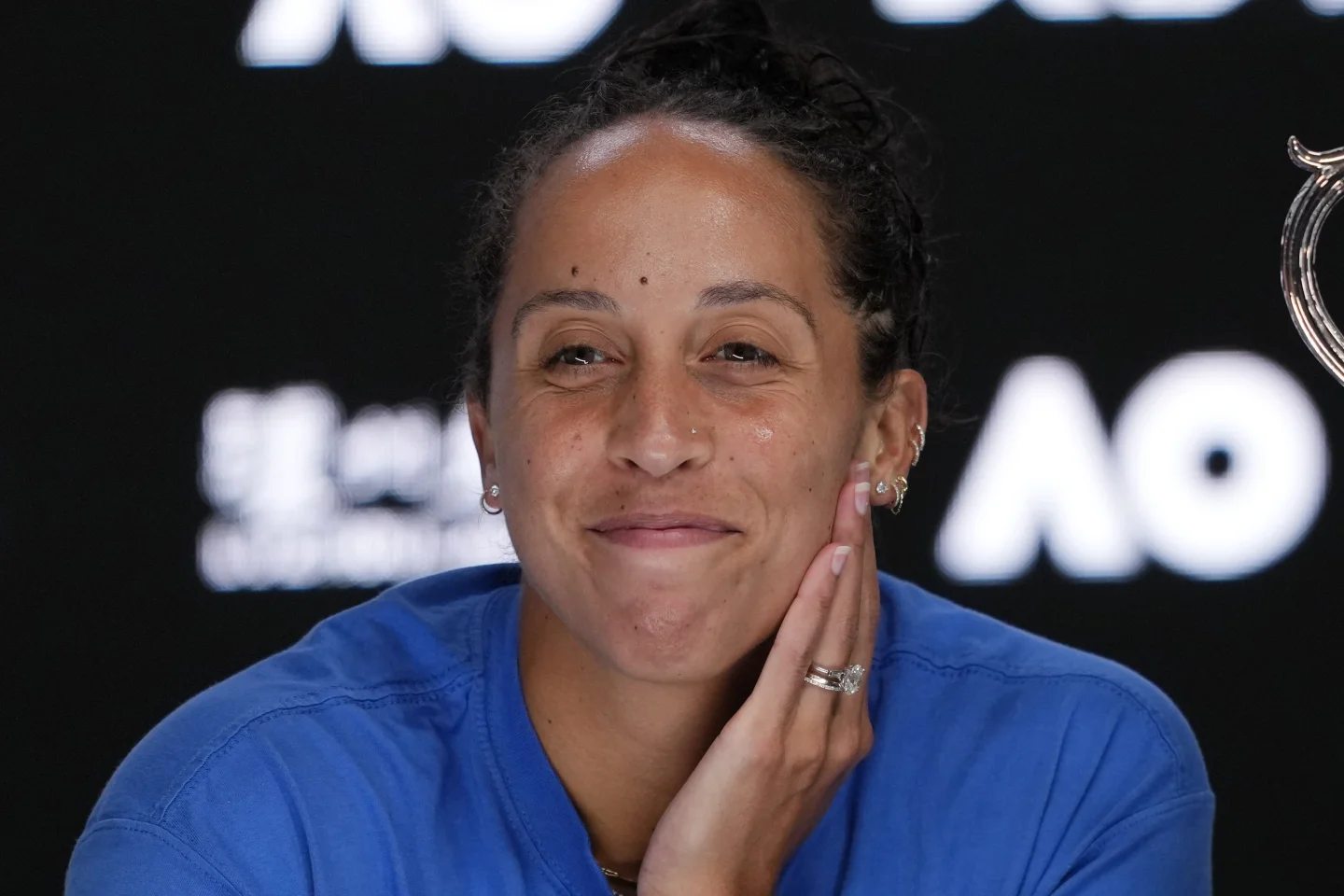When Madison Keys entered Rod Laver Arena for the Australian Open final on Saturday night, she walked right past the Daphne Akhurst Memorial Cup, the trophy for the women’s champion. It was placed on a pedestal near the court entrance, but Keys didn’t stop to stare.
The cup was later brought to the net for the pre-match coin toss, right next to where Keys stood, close enough for her to touch and feel. Her opponent was No. 1-ranked Aryna Sabalenka, the two-time defending champion at Melbourne Park, who wasn’t going to make things easy for Keys on this cool, breezy evening.
Overcoming Doubt and Pressure
After 2 1/2 hours and a 6-3, 2-6, 7-5 win over Sabalenka, Keys stood with the biggest smile on her face, holding the silver trophy with both hands, a Grand Slam champion at 29. Keys had been considered a future star before she was a teenager, and this was her second opportunity to compete for a major title.
Her first attempt ended in a heavy loss at the 2017 U.S. Open, an experience that taught her how to manage nerves.
It wasn’t until she accepted that winning a Slam might never happen and that she’d be okay with that, after years of therapy, that Keys was able to achieve her dream.
“From a pretty young age, I felt like if I never won a Grand Slam, then I wouldn’t have lived up to what people thought I should have been. That was a pretty heavy burden to kind of carry around,” Keys said, recalling how she reached her first major semifinal a decade ago in Australia.
“I finally got to the point where I was proud of myself and proud of my career, with or without a Grand Slam. I finally got to the point where I was okay if it didn’t happen. I didn’t need it to feel like I had a good career or that I deserved to be talked about as a great tennis player,” she said.
“I feel like finally letting go of that kind of internal talk that I had just gave me the ability to actually go out and play some really good tennis to actually win a Grand Slam.”
A Hard-Fought Victory
Keys, who was born in Illinois and now lives in Florida, became the oldest woman to win her first Slam since Flavia Pennetta at the 2015 U.S. Open. This was her 46th Grand Slam appearance, the third-most before winning a women’s major title, behind Pennetta’s 49 and Marion Bartoli’s 47 at Wimbledon in 2013.
She didn’t have an easy road to the final. Before defeating Sabalenka, Keys beat No. 2 Iga Swiatek in the semifinals, saving a match point along the way. She became the first player since Serena Williams in 2005 to beat both of the WTA’s top two women at Melbourne Park.

“Winning that match the other night against Iga was really kind of a big hurdle,” Keys said. “I always believed that I could do it, but to do it that way — really I thought to myself after the match that I can absolutely win on Saturday.”
To win the final, Keys needed to prevent Sabalenka from claiming her third consecutive Australian Open title — something last done by Martina Hingis from 1997-99 — and her fourth major title overall.
After the match ended, Keys covered her face with her hands, then raised her arms in victory. She hugged her husband, Bjorn Fratangelo, who has been her coach since 2023, and other members of her team. Then, she sat on the sideline, laughing.
Sabalenka threw her racket, covered her head with a towel, and briefly left the court before returning for the post-match ceremony. “I just needed … that time for myself to kind of switch off and forget and … be respectful,” Sabalenka explained later.
Keys’ Powerful Performance
Keys broke Sabalenka three times in the first set, thanks in part to Sabalenka’s four double faults and 13 unforced errors. But it wasn’t just Sabalenka’s mistakes — Keys played a big part in controlling the match.
For a period, it seemed like every shot from Keys was landing exactly where she wanted, near the corner, on the line, out of Sabalenka’s reach. Keys, who had taped her left thigh for the match, also moved quickly around the court, returning balls with precision and determination.
Sabalenka, not one to hide her emotions, kicked a ball after missing a volley and dropped her racket after an overhead shot went awry. She went to the locker room before the second set. Whether that helped her reset or slowed Keys’ momentum, the match shifted.
Keys’ first-serve percentage dropped from 86% in the first set to 59% in the second. Sabalenka raised her winner count from four to 13 in the second set and began converting break points.
After Sabalenka broke Keys to take a 2-1 lead in the second set, she celebrated by shaking her left fist and gritting her teeth. The third set was tense, with no break points until the final game, when Keys hit a winning forehand to seal the match.
The match was incredibly close — Keys won just one more point than Sabalenka, 92-91, with both players finishing with 29 winners.
“I didn’t always believe that I could get back to this point,” Keys said after the match. “But to be able to do it and win, it means the world to me.”
